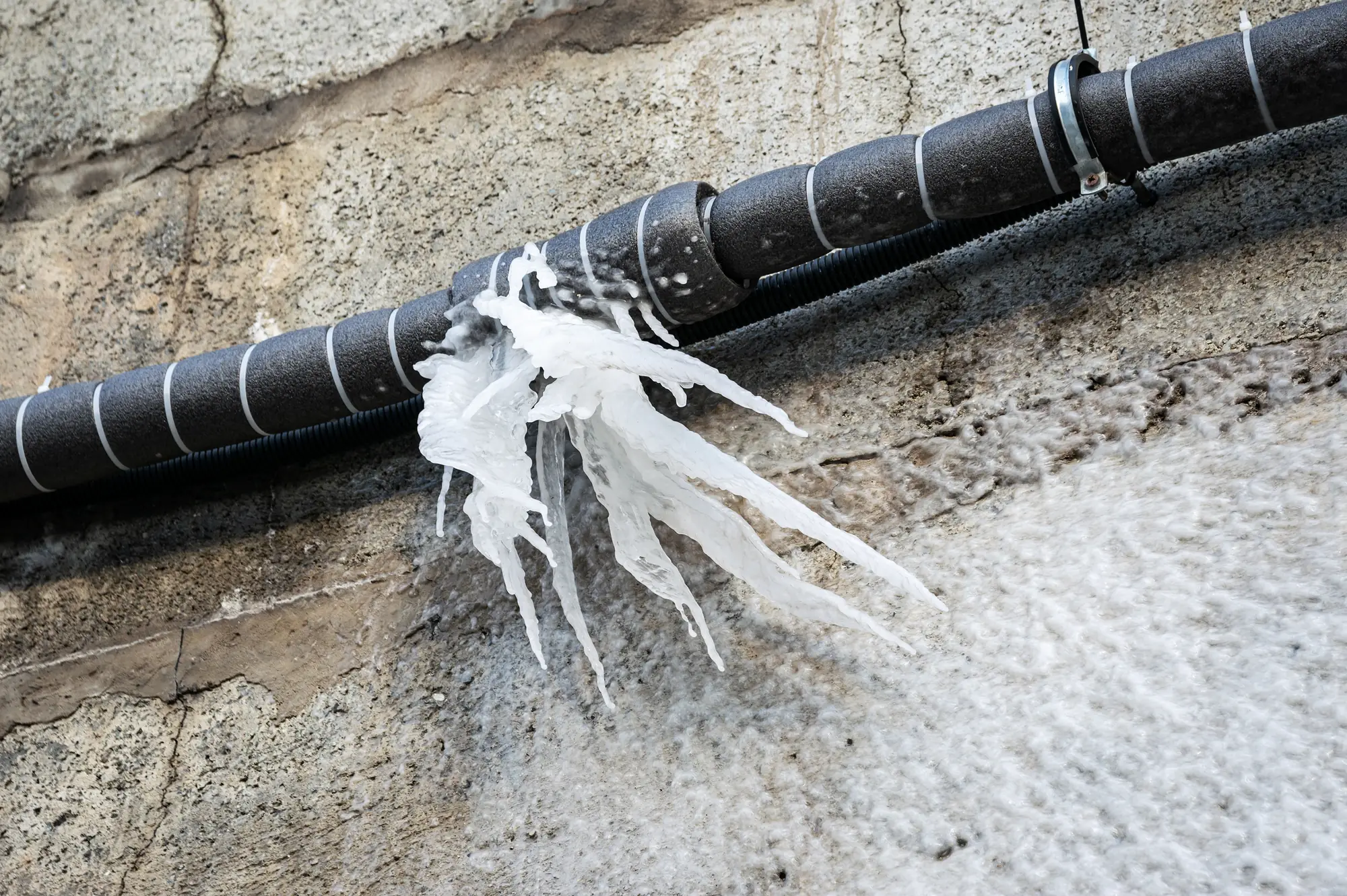
Hear From Our Customers
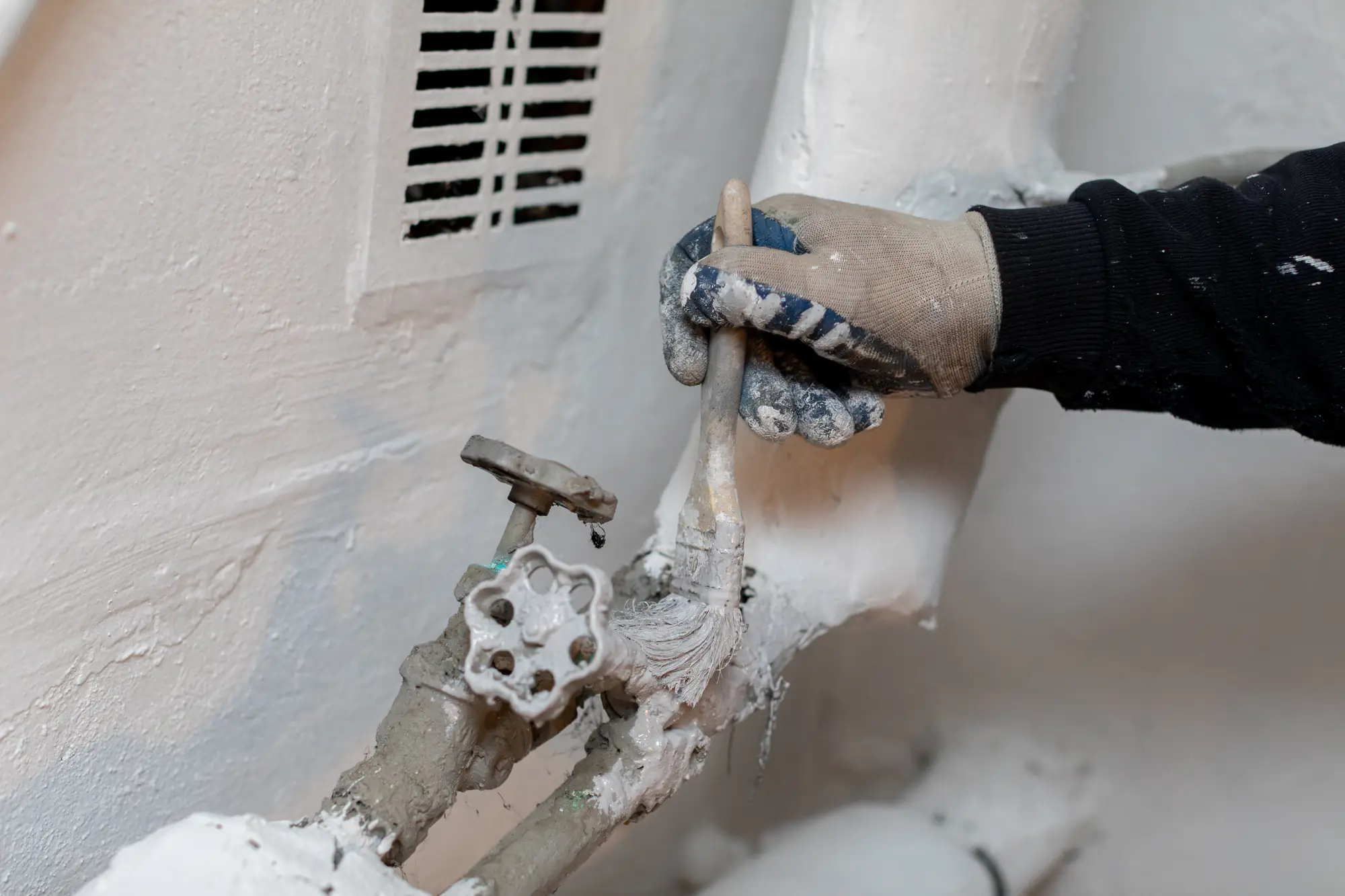
You turn the faucet and nothing comes out. In Indian Head Park’s harsh winters, this usually means one thing: frozen pipes. The good news? We can get your water flowing again fast.
Most frozen pipe situations get resolved the same day we arrive. Our technicians use professional thawing equipment that safely restores water flow without damaging your pipes. No more cold showers, no more worrying about burst pipes flooding your home.
The real relief comes from knowing the problem won’t happen again. We don’t just thaw your pipes and leave – we identify why they froze and fix the underlying issue so you can get through the rest of winter worry-free.
We’ve been solving Indian Head Park’s toughest plumbing emergencies since 2001. We know this community – from the older homes near Wolf Road that need extra pipe insulation to the newer developments where builders sometimes cut corners on weatherproofing.
Our trucks are stocked with everything needed to handle frozen pipes immediately. No waiting for parts, no second trips. We’re licensed, bonded, and insured, so you know the work meets local codes.
Indian Head Park residents trust us because we show up when we say we will, charge what we quote, and fix problems right the first time. That’s how we’ve built our reputation in this community over two decades.
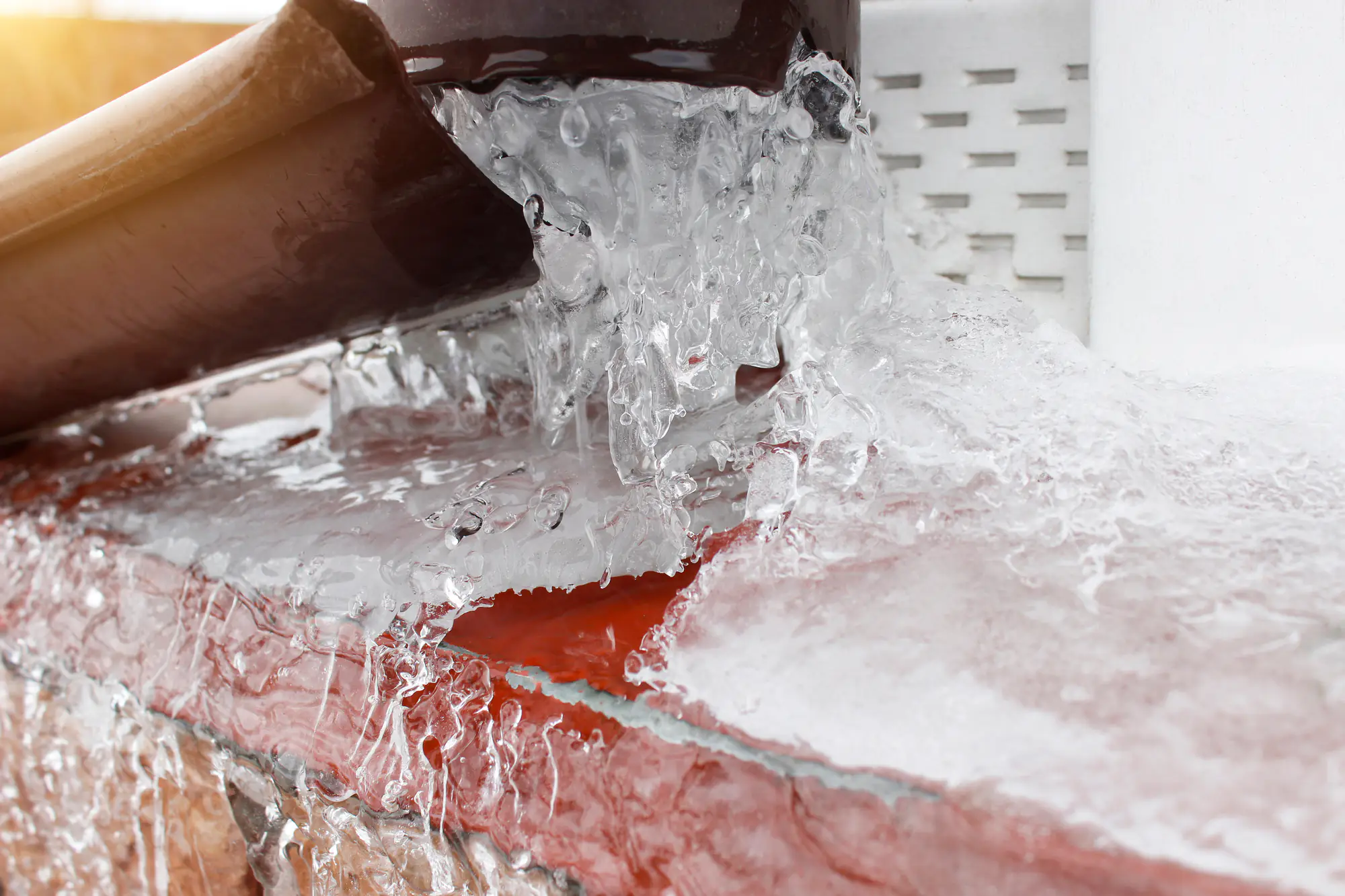
First, we locate exactly where your pipes are frozen. Sometimes it’s obvious – like an exterior wall where you can see frost. Other times we need to trace the problem through your home’s plumbing system.
Next comes the thawing process. We use specialized electrical equipment that safely warms your pipes from the inside out. This isn’t a hair dryer or space heater approach – it’s professional-grade equipment that thaws pipes without causing them to burst from rapid temperature changes.
While the pipes are thawing, we inspect the rest of your plumbing system. We’re looking for other areas that might freeze next, checking insulation, and identifying any damage that occurred before we arrived. Once water is flowing normally, we test your entire system to make sure everything works properly and discuss prevention steps for the rest of winter.
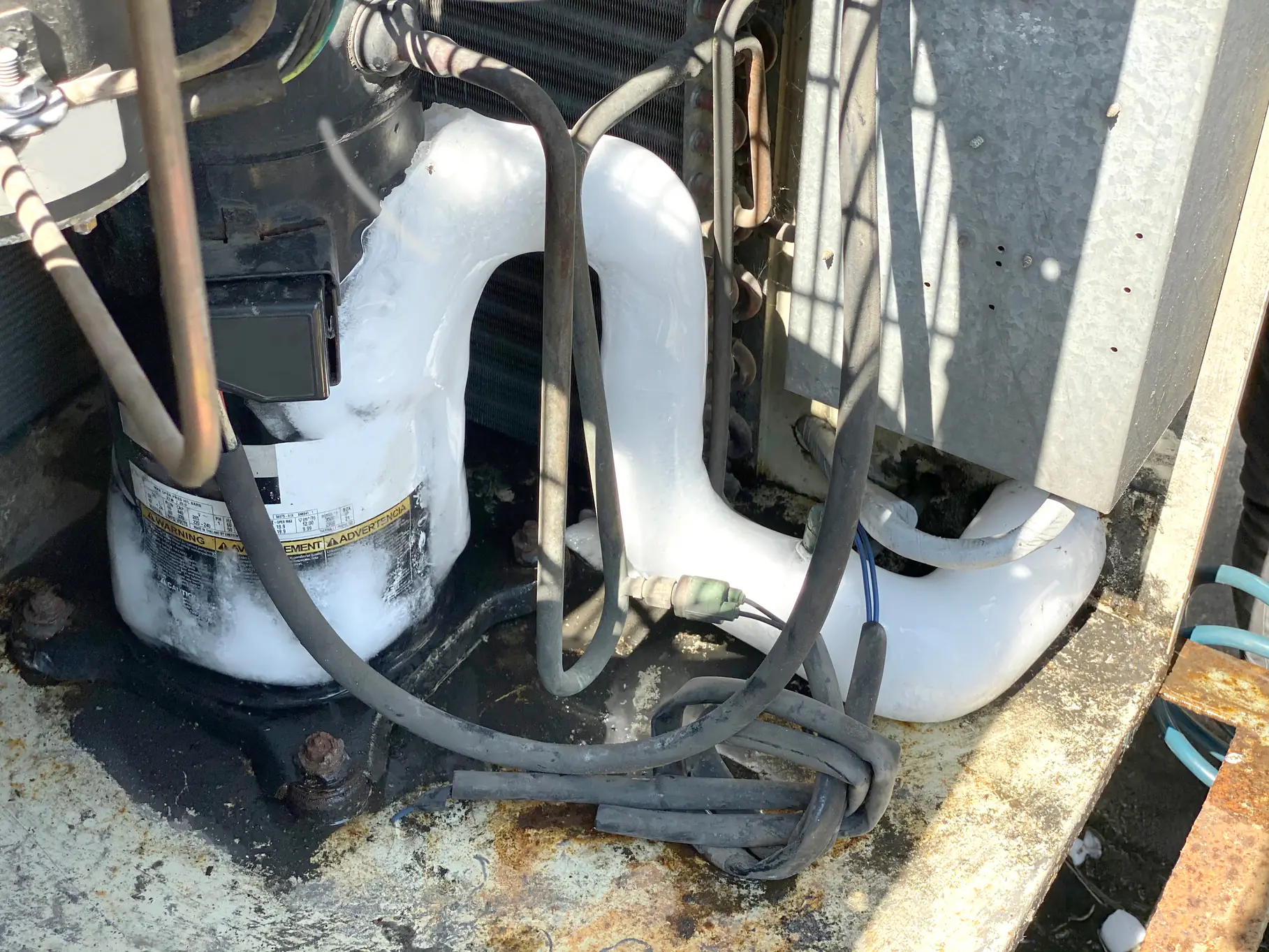
Ready to get started?
Our frozen pipe repair service includes everything you need to get through Indian Head Park’s brutal winters. Beyond emergency thawing, we provide pipe insulation, weatherproofing recommendations, and preventative maintenance that stops problems before they start.
Indian Head Park’s mix of older and newer homes creates unique challenges. Homes built in the 1960s and 70s often have pipes running through exterior walls without adequate insulation. Newer construction sometimes has pipes in crawl spaces that don’t get enough heat circulation during extreme cold snaps.
We’ve seen it all in this area. The ranch homes on Joliet Road where basement pipes freeze when furnaces struggle. The split-levels near Indian Head Park Elementary where second-floor pipes freeze because heat doesn’t reach them. Every situation gets a customized solution based on your home’s specific layout and the local weather patterns we know so well.
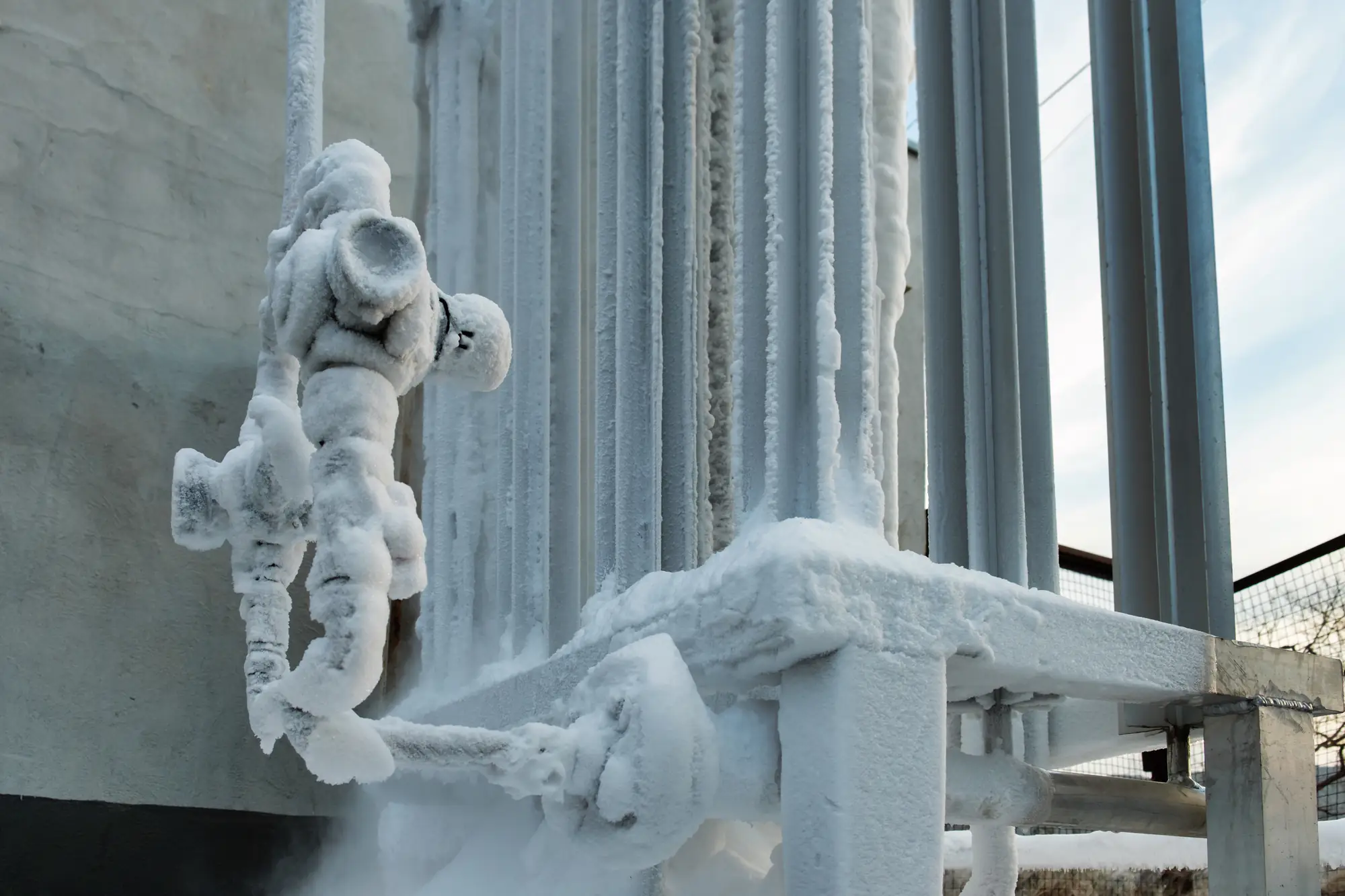
We typically arrive within 1-2 hours of your call, even during overnight emergencies. Our trucks stay stocked with pipe thawing equipment year-round, so we’re ready the moment temperatures drop below freezing.
Indian Head Park’s location means we can reach most homes quickly from our Chicago base. During severe weather events when multiple homes have frozen pipes, we prioritize calls based on urgency – homes with burst pipes or no heat get priority, but we still respond to all frozen pipe calls the same day.
We answer our phones 24/7 with real plumbers, not answering services. When you call at 2 AM because your pipes froze, you’re talking to someone who can dispatch a truck immediately and give you guidance on protecting your home until we arrive.
The main culprits are exterior wall placement and inadequate insulation. Many Indian Head Park homes have pipes running through exterior walls where they’re exposed to cold air infiltration. When temperatures drop to the 20s – which happens regularly here – these pipes freeze first.
Crawl spaces and basements without proper heating also create problems. If your furnace is struggling or you’ve had power outages, the temperature in these areas drops fast. Pipes in unheated garages, attics, or outdoor areas freeze within hours once temperatures hit 32 degrees.
The homes most at risk are older constructions built before modern insulation standards, split-level designs where heat doesn’t circulate evenly, and any property where previous owners didn’t properly winterize outdoor spigots and hose connections.
While you can try gentle methods like hair dryers or warm towels, professional thawing is usually necessary for complete success. DIY approaches often only partially thaw pipes, leaving ice blockages that cause problems later.
The bigger risk is that you won’t know if the freezing caused pipe damage until it’s too late. Pipes can crack from ice expansion without showing obvious signs until they thaw and start leaking. Professional thawing equipment lets us monitor the process and immediately identify any damage.
Never use open flames, propane heaters, or high-heat sources to thaw pipes. These methods can cause pipes to burst from rapid temperature changes, create fire hazards, or produce dangerous carbon monoxide in enclosed spaces. Professional electrical thawing equipment is designed specifically for this purpose and eliminates these risks.
Emergency frozen pipe thawing typically ranges from $150-$400 depending on the complexity and location of the blockage. Simple cases where pipes are easily accessible cost less than situations requiring wall access or multiple frozen sections.
If pipes have already burst, repair costs depend on the extent of damage. Minor pipe section replacement might add $200-$500 to the bill, while major damage requiring wall or floor work can cost significantly more. This is why calling us immediately when you suspect frozen pipes saves money in the long run.
We provide upfront pricing before starting any work, even during emergency calls. There are no surprise charges for after-hours service, and we explain exactly what needs to be done and why. Most frozen pipe situations get resolved for under $300 when caught early.
First, locate your main water shutoff valve and know how to turn it off if pipes burst. Keep cabinet doors open under sinks to let warm air circulate around pipes. If you have space heaters, place them safely near areas where pipes might be frozen, but never leave them unattended.
Don’t turn off your heat to save money – frozen pipes cost much more than higher heating bills. If you lose power, consider staying elsewhere until heat is restored, especially during extended cold snaps. Running faucets at a slight drip can help prevent additional pipes from freezing.
Most importantly, don’t panic if you hear cracking or popping sounds from walls – this is often pipes expanding as they thaw, not necessarily bursting. However, if you see water stains on walls or ceilings, or if water starts flowing where it shouldn’t, shut off your main water supply immediately and let us know when you call.
The most effective prevention combines proper insulation with consistent heating. Insulate pipes in exterior walls, crawl spaces, and attics. Seal air leaks around pipes where they pass through walls or foundations – even small gaps let in enough cold air to freeze pipes.
Keep your thermostat at the same temperature day and night during cold snaps. The extra heating cost is minimal compared to frozen pipe repair bills. Open cabinet doors under sinks during extreme cold to let warm air reach pipes. Disconnect and drain outdoor hoses before winter arrives.
Schedule a preventative inspection before winter hits. We can identify vulnerable areas in your specific home and recommend targeted solutions. Some Indian Head Park homes need heat tape on certain pipes, others benefit from additional insulation, and some require minor plumbing modifications to move pipes away from exterior walls.